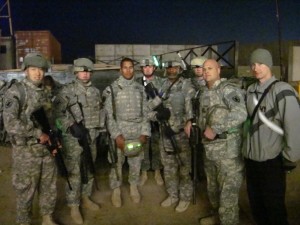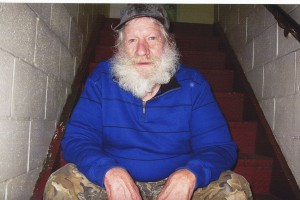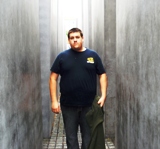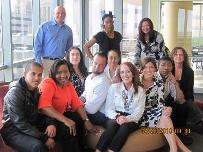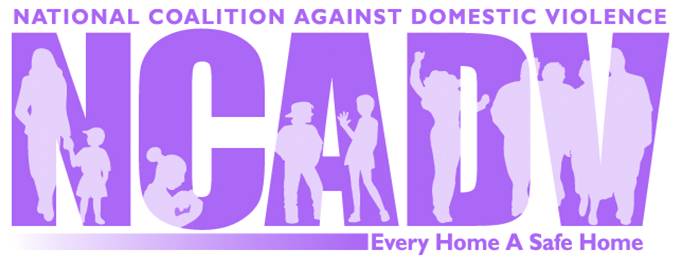 “The hardest part, by far, is to make the bad pictures go away. In war time, the world is one big long horror movie, image after image. If this is anything like Vietnam, I’m in for a lifetime of wee-hour creeps.” — Tim O’Brien, Vietnam Veteran.
“The hardest part, by far, is to make the bad pictures go away. In war time, the world is one big long horror movie, image after image. If this is anything like Vietnam, I’m in for a lifetime of wee-hour creeps.” — Tim O’Brien, Vietnam Veteran.
Assimilating back into an everyday routine is difficult for anyone who has been absent for a period of time. Have your ever gone on a long vacation and not driven a car for three weeks, then upon arriving back at the airport, gotten into your car, and noticed how strange it felt to put your car into reverse and pull out of the parking lot? Think for just a moment about how awkward it must be for soldiers returning from a combat zone to come back to the United States after being at war.
Soldiers returning from active duty in the military serving in the combat arms, especially if they have been in the Infantry or a “Grunt” (meaning someone other than a POG—Personnel other than Grunts), are more likely to experience difficulty regulating back into normal, resident existence than a Fobbit (soldiers who never leave the gates). Once these men and women are ready to leave the military and enter a civilian lifestyle, there are many adjustments to be made. I will list three of the Psychological and Social dilemmas faced by Veterans returning to society.
Psychologically, these Veterans are faced with numerous issues. Three of these issues include:
(1). Post Traumatic Stress Disorder (PTSD) affects many of the soldiers returning from war. This is the number one psychological problem. There are specific ways to assess and diagnose PTSD symptomology for combat Veterans. Treatment methodology may vary, according to individual needs of the Veteran, as there is no “one cure fits all.” Cognitive behavioral intervention has proven to be effective over a prolonged period of time, as has psychotherapy.
(2). Panic attacks can be set off by any reminder of the trauma the soldier endured during their line of duty. Firework displays may be beautiful to the general public, but to a soldier, this sounds like gunfire and Javelin tank missile.
(3). Flashbacks are the “trademark” of PTSD. The terror of war can return months, years, or decades later at the drop of a dime. A stressful experience can bring back the flashback.
Socially, our Veterans who are returning to civilian life have a challenging time adjusting, as well. Three of the issues they face are:
(1). Veterans cannot talk with the normal civilian when they are troubled. Let’s face it. You, nor I, have seen, heard, or experienced what a combat soldier has done. Only those who have “been there, done that” truly understand with empathetic hearts what that soldier has been through. Do not ask a soldier or Veteran what he or she did or what he or she saw while they were at war. This would be insulting and one of the most stupid things you can say to a Veteran. If they want to talk about it, they will. And if they do, just listen. You don’t have to say a word, except perhaps suggest they seek professional help if they need it (and trust me, most do).
(2). Hypervigilance is both psychological (a pattern under PTSD) and a social problem for the warrior upon returning home. The Veteran is constantly hypervigilant to the point of noticing all smells, scoping out a crowd for the one who appears to dressed differently (we may think someone dressed to the nine in a jacket is handsome, whereas the soldier is thinking, “What is underneath that heavy jacket?”), when they do close their eyes, a soldier’s ears begin working overtime because this is what they have been trained to do, and a soldier is always searching for the nearest door and exit route in every room. A soldier has been trained to be “on guard” at all times, so letting down his or her guard, just because they are back in society, does not mean this will come easy for them.
(3). Acceptance and integrating, in general, will be difficult for the Veteran upon returning home. During the Vietnam era, the returning soldiers were hated and loathed because of the war. Now, with the return of our soldiers, they are welcomed with open arms. This attitude surely helps, but please remember, the soldier must train himself or herself to go from warrior mode to civilian mode. What we, as civilians, take for granted and as normal, everyday routine, will not be normal to the Veteran for a long time. When we are stopped in our car, not moving on six lanes of traffic during rush hour, we know this is because of a wreck up ahead or due to a traffic jam. The returning soldier is instantly thinking, “How can I get out of here—where is my escape route?” If you live in a large city and are stopped on an extended bridge due to traffic, you accept the fact you could be in your car for three hours and shut it off while waiting. The Veteran is wondering where the IED (roadside bomb) is.
Hopefully, those three bullet points each for psychological and social aspects of blending back into society helped you understand what it is like for a soldier to return home and why they may struggle. As one who cares for Veterans, try to remember that assimilating back into normal, run-of-the-mill routines is not going to be easy for the soldiers who are returning to civilian lives. We must be sensitive to their needs. When Veterans say they do not feel like going out into a large crowd or party, please understand they may be having a stint of hypervigilance that day and just do not feel like being in a crowd.
Above all, patience is the key in helping Veterans cope with returning to civilian ways of life.
©Copyright – Gayle Joplin Hall, PhD. All rights reserved worldwide. None of this material may be downloaded or reproduced without written permission from the author.



